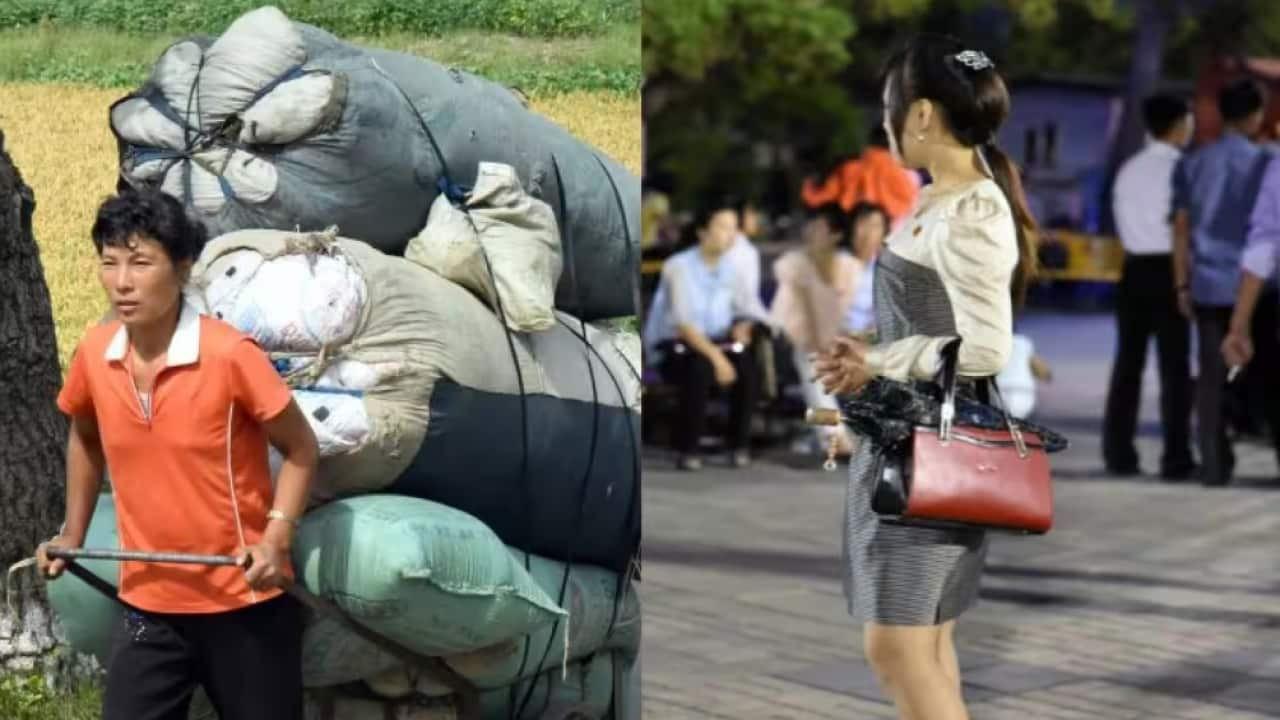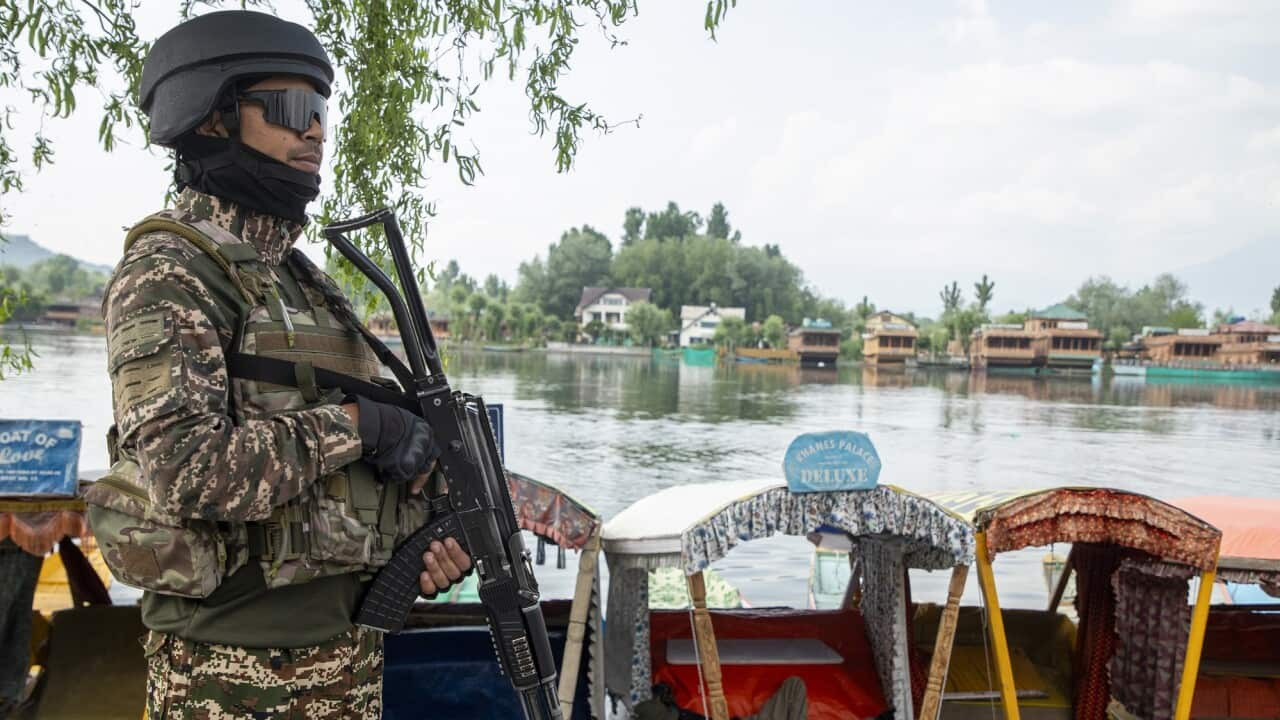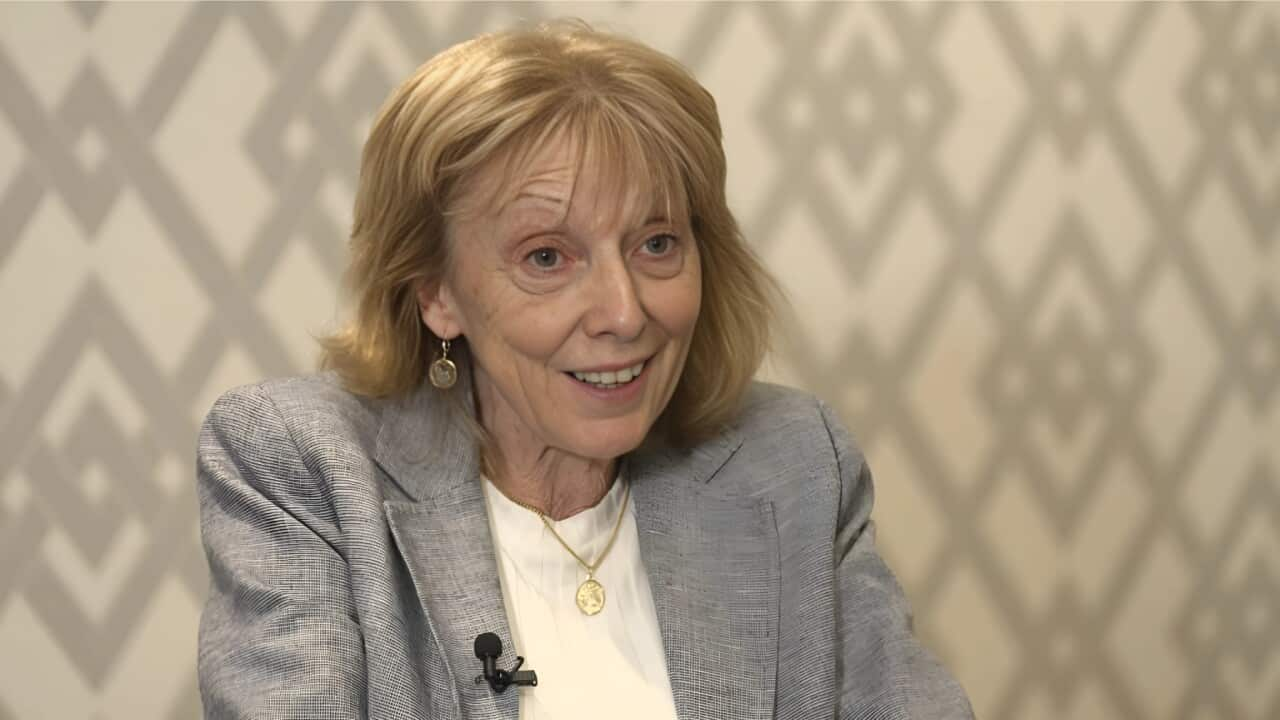TRANSCRIPT
North Korea is often described as one of the most repressive countries in the world.
But a new exhibition at the University of Technology Sydney aims to reflect how North Korean women are flipping the script against a backdrop of economic hardship and social constraint.
Sydney-based writer and photographer Lesley Parker travelled to the Democratic People’s Republic of Korea with a group of researchers in 2015 and 2018, capturing what she calls a quiet transformation in the lives of women in North Korea.
Famine struck North Korea in the 1990's, a time when men were forced to work and women to stay at home.
Director of the Masters of Not-for-Profit and Social Enterprise Program, Bronwen Dalton, says the North Korean government put all of its focus on men during the famine.
"North Korea provides a salutary lesson for patriarchy is everywhere. North Korea only saw men as having agency and power and capacity, and that they were very concerned when during the famine, basically the factories closed down and there was nothing to do. So they insisted that all the men still report to work even if they had nothing to do at work. So the government devoted all of its resources to monitoring the movements of men, and they took their eye off women."
Professor Dalton says women in North Korean society then took it upon themselves to provide for their family.
"But it was the women, who in the shadows turned raw materials very secretly at night into some sort of value added process, and then began setting up markets just in the streets. and that grew and grew until North Korea established formal market systems."
These informal markets are now credited with increasing trade with China and strengthening the economy.
Associate Professor for the Social and Political Sciences Program at U-T-S, says some North Korean women make fun of their husbands for depending on them.
"The role flipped, so as women became the breadwinners and the centre of the household, men became dependent on their wives income and so on. So North Korean women are very humorous and they, you know making fun of their husband. So they shared some jokes with us and say that men have now become so useless. So there is a [saying] that [they're like] a light bulb in the daytime, so we don't have to turn the light on."
Prior to the outbreak of Covid-19, women contributed more than 70 per cent of the country's household incomes.
Professor Dalton and Professor Jung have now co-authored a book, 'North Korea's Women-Led Grassroots Capitalism', which provides a record of the evolution of women in North Korea.
Including the stories of fifty-two North Korean defectors now living in South Korea and China, the book tells of what many of these defectors describe as a shift towards matriarchy in North Korea.
But Professor Dalton says it's important not to forget the consequences and costs of gaining power in North Korea.
"We have been showcasing and trying to recognise the agency of North Korean women and for their voices to be heard. But we do not in any way want to minimise the cost of gaining some modicum of power in North Korea. Women are disproportionately the subject of harassment, imprisonment, bribery, and other forms of deprivation, and also sex trafficking. So we do not want to minimise the consequences of having an opinion or a bit of a strong will. in what is a very controlling or authoritarian state."
North Korea’s constitution claims women experience “equal social status and rights with men” , but human rights groups say this is not the case.
Groups like Human Rights Watch say North Korean women and girls are subjected to widespread sexual and gender based violence, discrimination and the enforcement of gender stereotypes.
Australia director at Human Rights Watch, Daniela Gavshon says the state of human rights in North Korea remains dismal.
"The state of human rights for Women in North Korea is really really poor, while on paper the North Korean government has signed up to a number of international human rights treaties, in practice, these are not being implemented. And so what we see is a Confucian system where it is very patriarchal, where women are taught to be subordinate to men and that filters through in every aspect of their lives."
Last year, 81 per cent of those escaping North Korea were women.
North Korean defector Kumyoung Choi now lives in Queensland.
She says many women heard of a better life through the market system.
"Women heard rumours, that if they went to China they could eat well, and there would be food and money, so most North Korean defectors, mostly women, escaped from North Korea after hearing these rumours."
Photographer Lesley Parker says she hopes her photos will show an often overlooked and unrecognised side to North Korean women and society in general.
"I think I want people to look at these photos this this glimpse of life in North Korea and understand that North Korean women, North Korean people generally, they're not brainwashed robots, which is the very strong media image that we have of people in North Korea. And they also separate to the to the government., you know, these are ordinary people living ordinary lives, having fun, building friendships, working really hard to build better lives for their families. Within the limited set of choices that they've got, these women are strong and resilient and creative so yeah, I think their lives are very different to ours, but they're also a lot like us as well we need to remember that."













